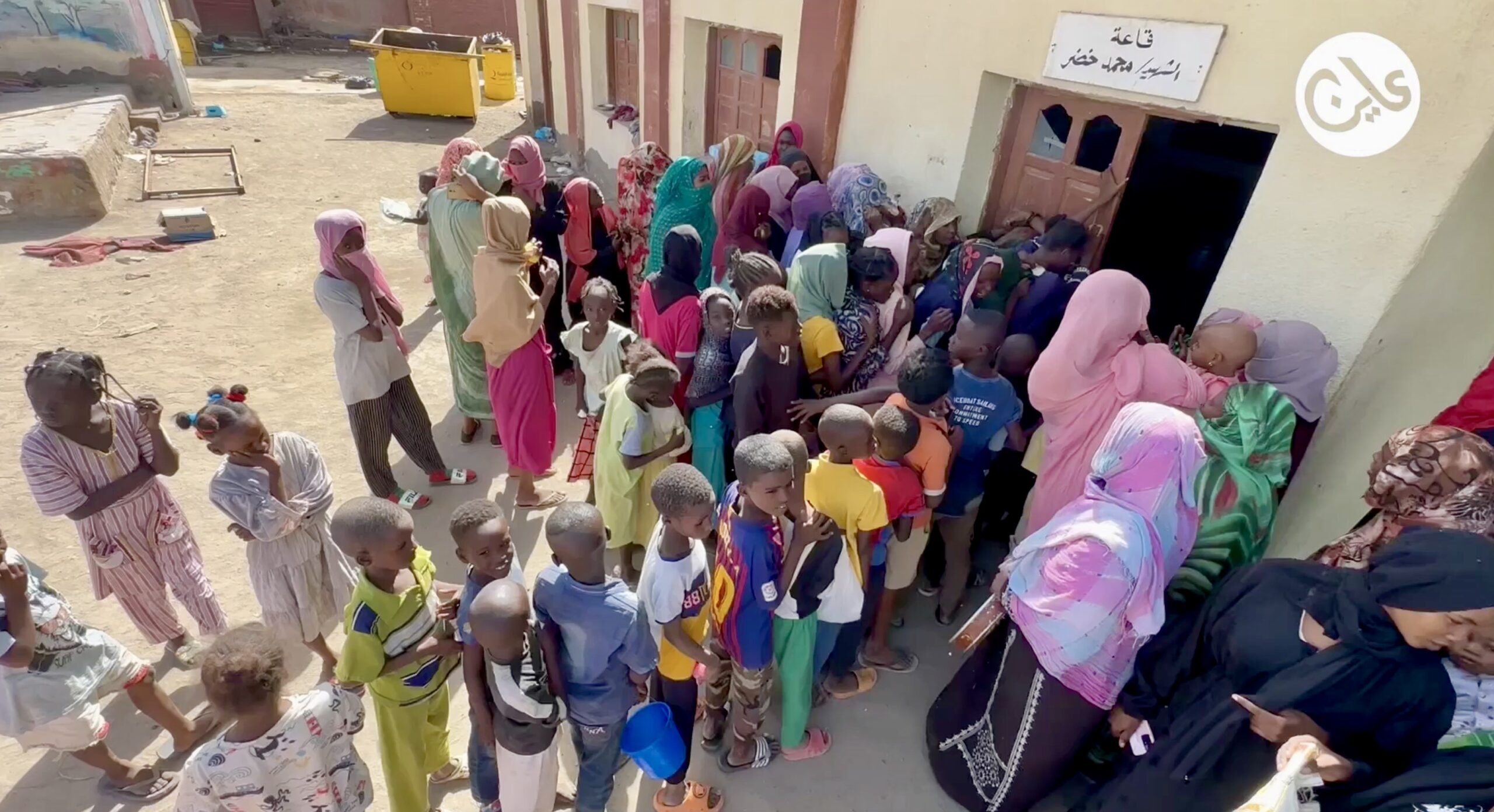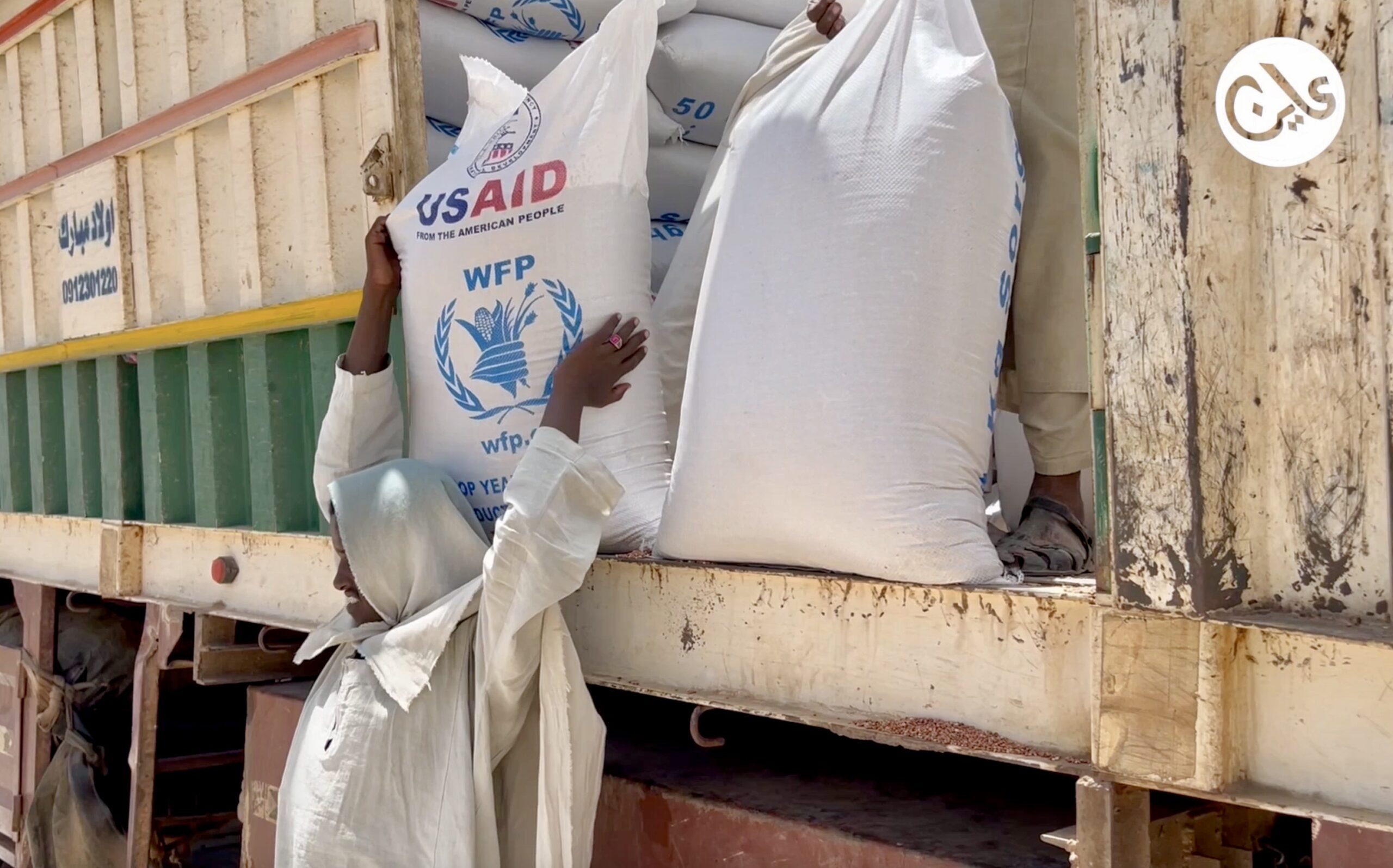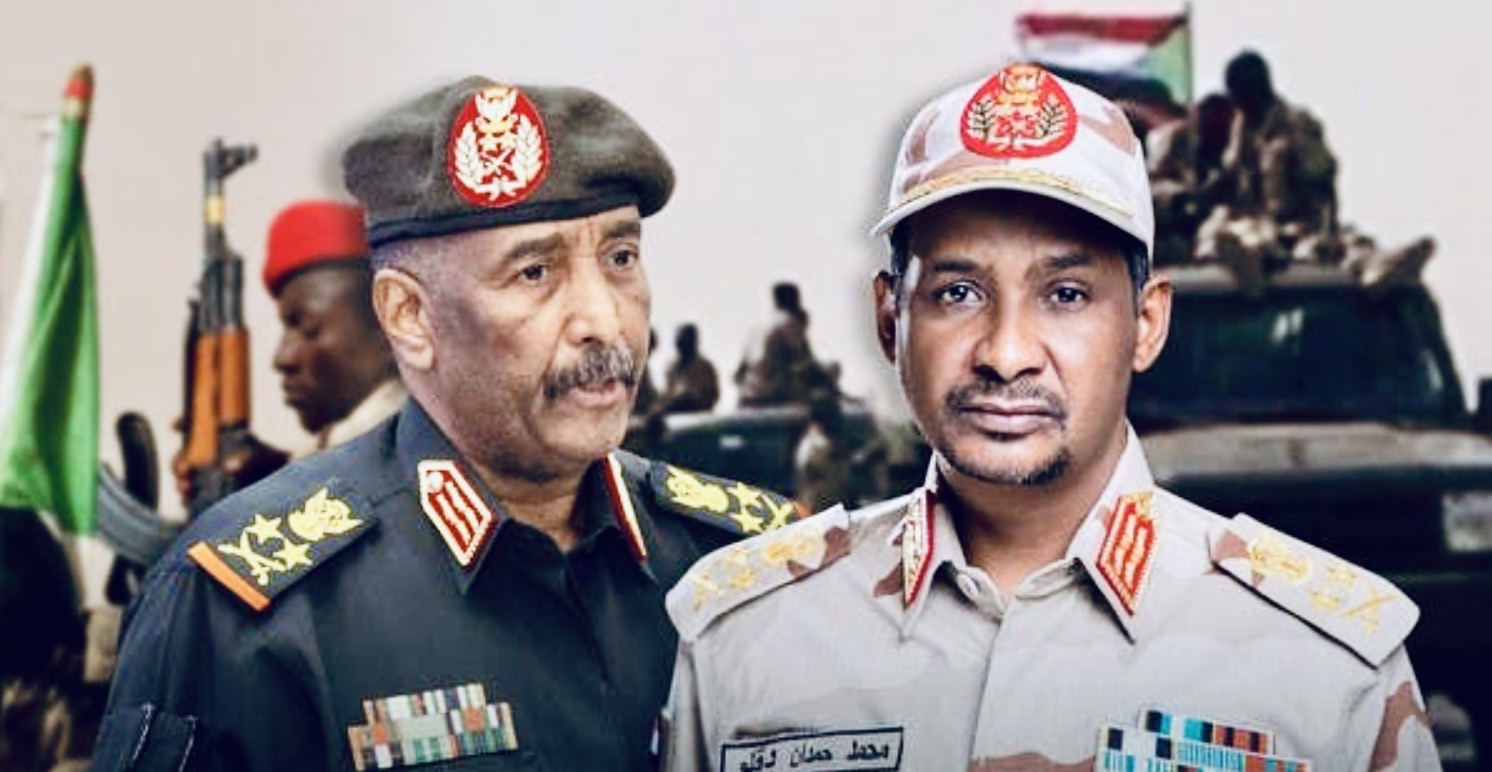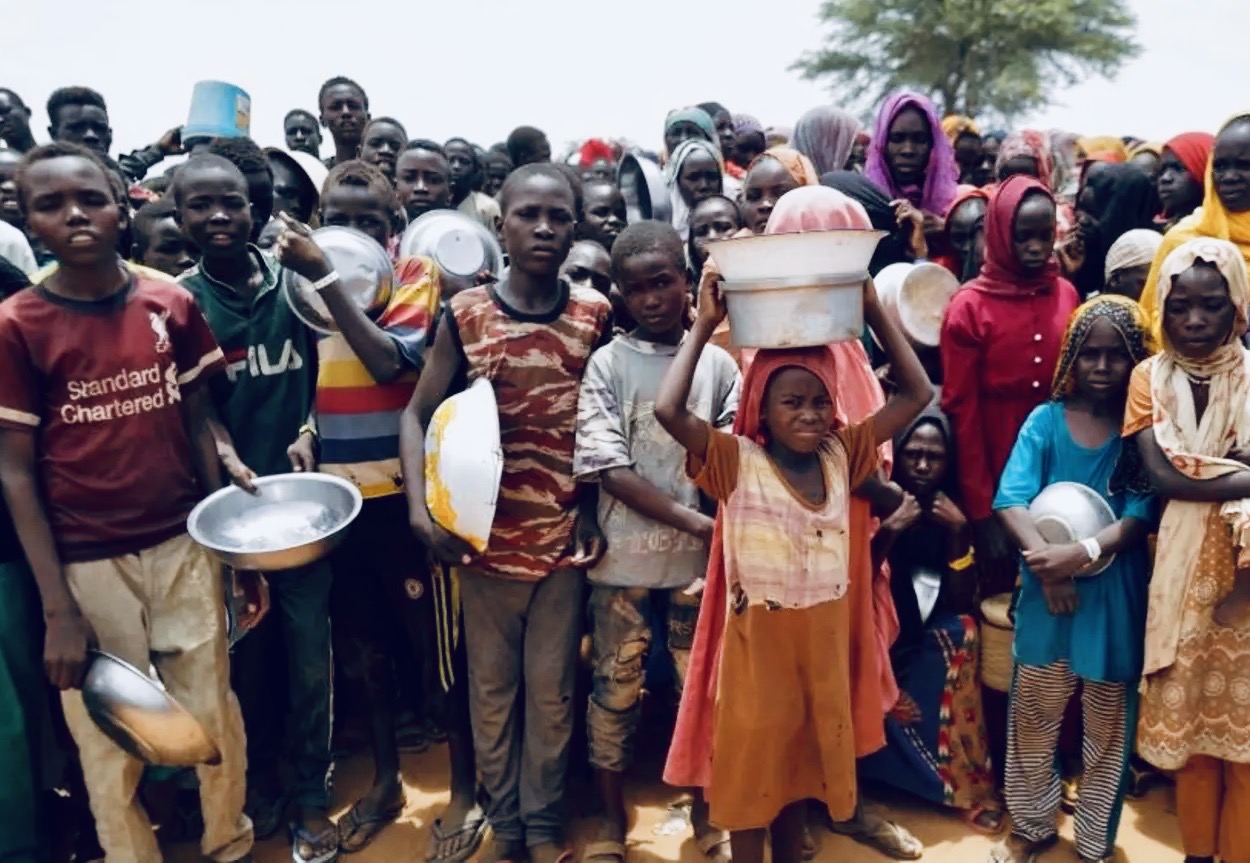Systematic starvation, a ceasefire is critical
13 August 2024
Sudan, now nearing 16 months of conflict, is reaching a catastrophic humanitarian “breaking point,” with potentially millions facing a man-made famine, the UN’s migration agency warned on Monday. With food insecurity so high, the army is under pressure to attend peace negotiations in Geneva this week to arrange a ceasefire with the paramilitary Rapid Support Forces and allow humanitarian supplies to enter the country.
The warring parties’ ongoing obstruction of humanitarian aid have exacerbated already critical conditions, leaving countless Sudanese citizens in desperate need of food and basic necessities—often taking desperate measures to acquire them. Children are sent to work, women are resorting to prostitution to secure food, and families are eating whatever they can find, with many pleading for help before it is too late.
“If aid doesn’t get delivered soon or the warring parties don’t open up humanitarian corridors, those of us in the conflict zones in Khartoum will die. We are on the brink of famine,” a resident from the Al-Oshara area of Khartoum told Ayin.
Hunger crisis
Approximately 25.6 million people are expected to face high levels of acute food insecurity between June and September, according to the Integrated Food Security Phase Classification (IPC), a multi-partner initiative for monitoring food insecurity. In addition, the IPC has declared famine in Zamzam Displacement Camp in El-Fasher, North Darfur State.
Along with Zamzam, famine conditions have also been declared in two other displacement camps in Darfur—Abu Shouk and Al-Salam. Over 500,000 displaced people are sheltering in these three camps. “The new number from the IPC shows that 750,000 people are at risk of famine—and we are not reaching them,” Mathilde Vu, spokesperson for the Norwegian Refugee Council (NRC), told Ayin.
The medical charity Doctors Without Borders (MSF) reported on 4 August that a month-long RSF blockade on trucks carrying lifesaving medicines and supplies has severely affected the treatment of malnourished children. With only two weeks’ worth of therapeutic food left, MSF has had to limit the number of children receiving treatment. The local advocacy group, the Displaced Persons Coordination Committee, reported 20 to 25 deaths daily in Darfur camps due to malnutrition. Children in Central and South Darfur States are facing severe malnutrition rates, with 90% of children suffering from life-threatening malnutrition.
In El-Fasher, North Darfur State, Vu said the ongoing fighting has persisted “for far too long,” mentioning the deadly attacks on hospitals in the city, which have resulted in the deaths of at least 97 people.“Inside the city, everything is missing: food, fuel, cash; it is extremely difficult to have a clear picture of the situation, as little information has come out, and our own teams have had to flee. El-Fasher is like a big IDP camp right now because so many people have fled the violence of the past year and found refuge in El-Fasher, and many could not leave during the fighting.”
Due to the devastating impact of hunger, Vu added, people are reduced to degrading measures for survival. “We can observe a rising number of children forced to work; we have seen a few instances of women having to prostitute themselves in order to get food. There are people fleeing Sudan and arriving in Chad because they are hungry; a few months ago it was because of fighting; now it’s also because they are hungry.”
But the minister of agriculture of the de facto government in Port Sudan denied the famine in Sudan, stating, “The reports from organisations are inaccurate.” The Humanitarian Aid Commission also issued a statement denying the claim of famine in Zamzam Camp, asserting that the situation is stable and emphasising that the commission closely monitors reports from various entities about the humanitarian situation.

Sudanese left to face starvation alone
“I have yet to come across anyone in my area who has enough to live on,” a resident of the Sharg El-Nil area of Khartoum told Ayin. “No aid whatsoever has come in, not even a bag of lentils. People struggle to find food and water—they struggle with all their basic needs.”
Bringing consumer goods into Khartoum is a risky process. “Basic goods like flour, sugar, and oil, which are smuggled in from Shendi and Gedaref, are also now hard to come by, as there is a possibility that they will be caught and the goods confiscated.” Residents are compelled to buy and consume whatever they can find due to the severe scarcity of basic commodities in the markets. “All basic food products that are available in the markets are expired,” he says. In early July, the Sharg Elnil emergency response room reported 25 cases of food poisoning, all suspected to be caused by the consumption of expired food products.
In the capital, citizens face a dual challenge: lack of access to food and insufficient cash to purchase it. A resident of the Al-Oshara area of Khartoum told Ayin, “Any money you save to buy these items is never enough. If we manage to have breakfast, it will be difficult to provide lunch.” Many families have downsized to consuming one meal a day, with even more relying on the community kitchens run by Emergency Response Rooms (ERRs) for that meal.

In Al Hasahisa, Jazeera State, there is a push to reactivate ERRs after the widespread devastation and displacement caused by the RSF’s onslaught on the state, but resources are meagre. “The situation is better than before, even though the support we receive for the ERRs is not enough and does not cover all the families in need or the provision of two meals a day,” an activist told Ayin. “In one area, we gave what should have been a month’s worth of support, but it only lasted a week. The support is lacking; it does not cover even a quarter of the population.”
In the markets of Maleet, North Darfur, food is readily available but out of reach for most. As one resident explains, “[Basic commodities] usually come from the Northern State or from Libya, all very far away areas, so the products that come here are very expensive.” Maleet has received around 40,000 displaced people from El Fasher and around the Darfur region, making the number of displaced more than native residents of the town. “Some are in need of assistance, but there are no organisations or any entities that provide help.” He adds, “People are just trying to carry each other and survive the best they can.”
Civilians across Darfur are urgently appealing for humanitarian intervention. Videos circulating on social media show children picking leaves off the same bushes on which goats feed. In a video obtained by Ayin, residents of Kalma IDP Camp call on humanitarian organisations for support. “We haven’t witnessed a famine like this since 1985; all the children have been affected. Starvation is everywhere; death is a daily occurrence—we just came back from the cemetery.”

Blocked humanitarian aid
Over the past year, both the army and the RSF have faced grave allegations of using humanitarian aid as a political tool. “Both of the warring parties are interfering with the delivery of humanitarian assistance and the movement of critical and lifesaving food supplies, especially into conflict hotspots like Darfur State, Kordofan, Jazeera State, and Khartoum,” World Food Programme (WFP) Spokesperson Lina Kinzli said.
Per the WFP spokesperson, the army and authorities in Port Sudan have been enforcing a very lengthy clearance process to move aid supplies. ”They have also closed the border from Adré in Chad into West Darfur, which was a critical cross-border corridor that allowed WFP to provide assistance to one million people between August and December of last year, that border was closed on 21 February.”
The RSF has also imposed significant impediments to aid delivery. “You have the paramilitary Rapid Support Forces making threats against aid convoys, increasing their military offensive and conflict spreading into new areas like now in El Fasher, as well as enforced fees and taxation in exchange for access and security. Indeed, we are facing interferences from both warring parties,” she added.
On February 23, the U.S. State Department issued a statement expressing deep concern over the Sudanese Armed Forces (SAF) ban on cross-border humanitarian aid delivery and the Rapid Support Forces (RSF) looting of aid warehouses and markets. The statement highlighted the harassment of humanitarian aid workers by both sides, reminding the warring factions of their obligations under International Humanitarian Law (IHL) and their commitments in the Jeddah Declaration to facilitate aid delivery.

Chances for a ceasefire, aid access
Tom Perriello, America’s Special Envoy for Sudan, among others, remains committed to the idea of the warring parties participating in peace talks in Geneva this week. Since the conflict began, however, the army has rejected participating in five separate peace initiatives. Judging on past comments, the army’s leader, Lt.-Gen. Abdelfattah al-Burhan, has little interest in negotiations and zero interest in a ceasefire that would allow humanitarian aid access. “No aid will be allowed in until the war is over,” Burhan told new army recruits in Sennar back in April. “And no one will rule or establish a government until the war ends. The war will only end when [the RSF] are out of every place they entered.”
According to Shareif Osman, the Political Secretary to the Sudanese Congress Party and leader in the civil peace movement, Taqaddum (meaning “progress”), the army has not provided any genuine reasons for their rejection to participate in the Geneva talks. Osman believes the army remains under the control of the former regime, the National Congress Party, which opposes any negotiations and only seeks a military victory. “It is clear that remnants of the former regime are still influencing the armed forces and threatening them with potential removal and division, which continues to control their decisions,” Osman told Ayin.
In turn, the RSF leader, Mohamed Hamdan Dagalo, known by his nickname “Himmedti,” has agreed in a statement to participate in the Geneva peace talks. “The other party, however, continues to procrastinate and delay, following the orders of the Islamic Movement leadership and ignoring the people’s desire to end the war,” he said in a statement. But the RSF leader’s words appear at loggerheads with the actions of his troops on the ground, who continue to loot and terrorise civilians in the area under their control, including agricultural areas that traditionally fed the country. Many civilians who have lived in RSF-controlled areas of the country told Ayin that RSF soldiers act with impunity with little control from senior RSF commanders. Even if the RSF leadership agree to a ceasefire, local sources said, they wield little power to enforce such a directive.
Regardless of the impact, both warring party leaders should cease hostilities as a first step in mitigating the dire humanitarian conditions on the ground, Osman said. Refusal to do so could be equated with a war crime. “The catastrophic humanitarian conditions and the threat of famine should compel the armed forces and their leaders to make the right and courageous decision related to the lives of millions of Sudanese and work to end this war for humanitarian reasons,” Osman said. “Should the armed forces refuse to participate in this round, it would amount to committing crimes against humanity.”



